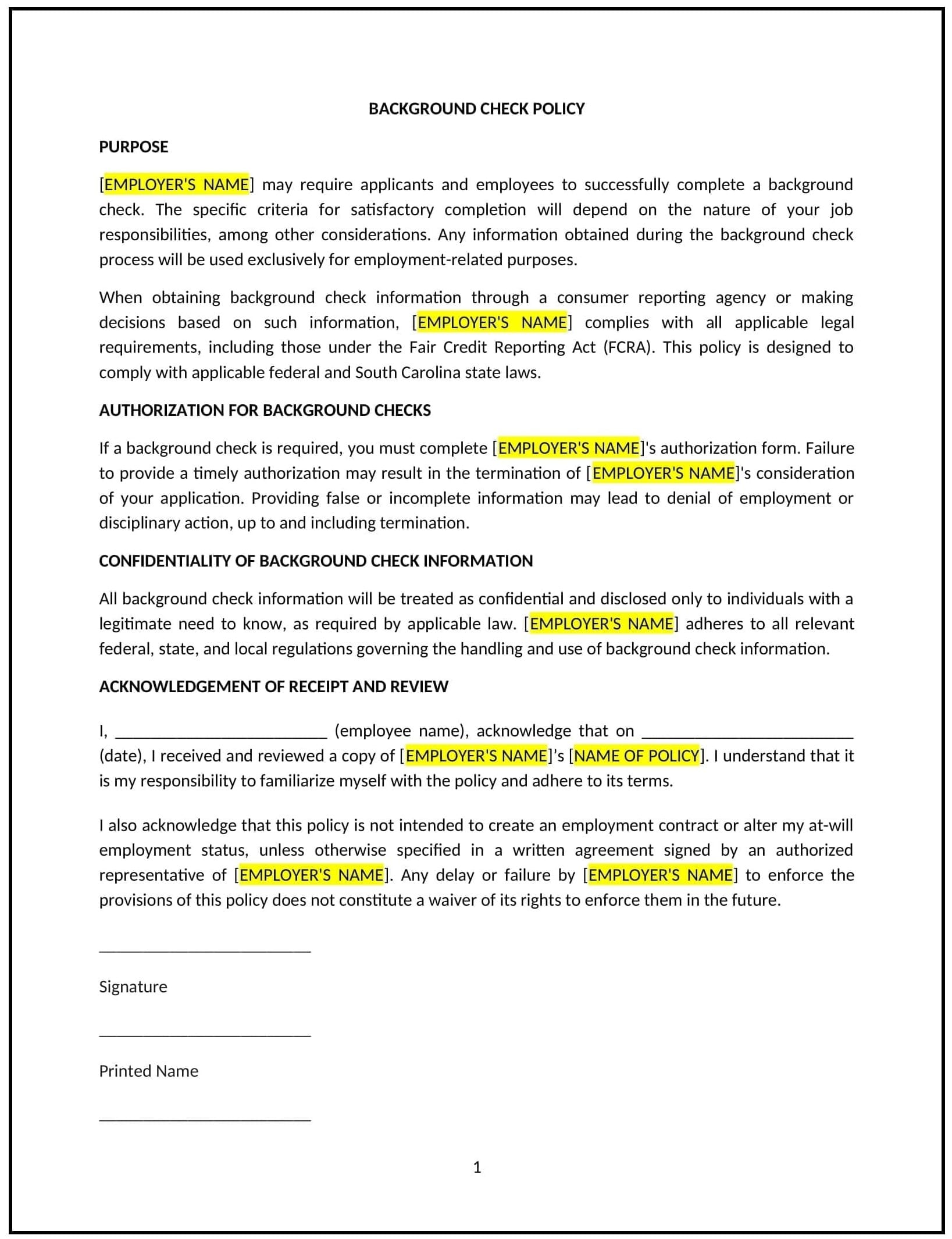Background check policy (South Carolina): Free template
Got contracts to review? While you're here for policies, let Cobrief make contract review effortless—start your free review now.

Customize this template for free
Background check policy (South Carolina)
This background check policy is designed to help South Carolina businesses establish guidelines for conducting pre-employment and ongoing background checks on employees and candidates. It outlines procedures for ensuring compliance with federal and state laws, protecting applicant privacy, and maintaining a safe workplace.
By adopting this policy, businesses can make informed hiring decisions, reduce risks, and align with general best practices for employment screening.
How to use this background check policy (South Carolina)
- Define scope: Specify which positions require background checks and the types of checks conducted, such as criminal history, employment verification, or credit checks.
- Establish procedures: Provide steps for obtaining consent, conducting checks, and evaluating results in compliance with the Fair Credit Reporting Act (FCRA) and state laws.
- Address privacy concerns: Outline measures to protect applicant and employee privacy, such as secure storage of background check information.
- Set evaluation criteria: Explain how background check results will be used in hiring or employment decisions, ensuring consistency and fairness.
- Train hiring managers: Educate supervisors on conducting background checks and interpreting results in accordance with the policy.
- Review and update: Assess the policy annually to ensure it aligns with evolving legal standards and business needs.
Benefits of using this background check policy (South Carolina)
This policy offers several advantages for South Carolina businesses:
- Promotes informed hiring decisions: Helps businesses evaluate candidates’ qualifications and suitability for specific roles.
- Reduces risks: Mitigates the likelihood of workplace incidents or legal liabilities related to negligent hiring.
- Aligns with legal standards: Ensures compliance with federal and state laws, such as the FCRA and South Carolina’s background check regulations.
- Protects privacy: Demonstrates a commitment to safeguarding applicant and employee information.
- Enhances workplace safety: Contributes to a secure work environment by screening for potential risks.
Tips for using this background check policy (South Carolina)
- Communicate the policy: Share the policy with hiring managers and include it in the employee handbook.
- Provide training: Educate hiring managers on conducting background checks and interpreting results in accordance with the policy.
- Monitor compliance: Regularly review background check processes to ensure adherence to legal standards and company guidelines.
- Address issues promptly: Take corrective action if background checks are mishandled or applicant rights are violated.
- Update regularly: Review the policy annually to ensure it aligns with evolving legal standards and business needs.